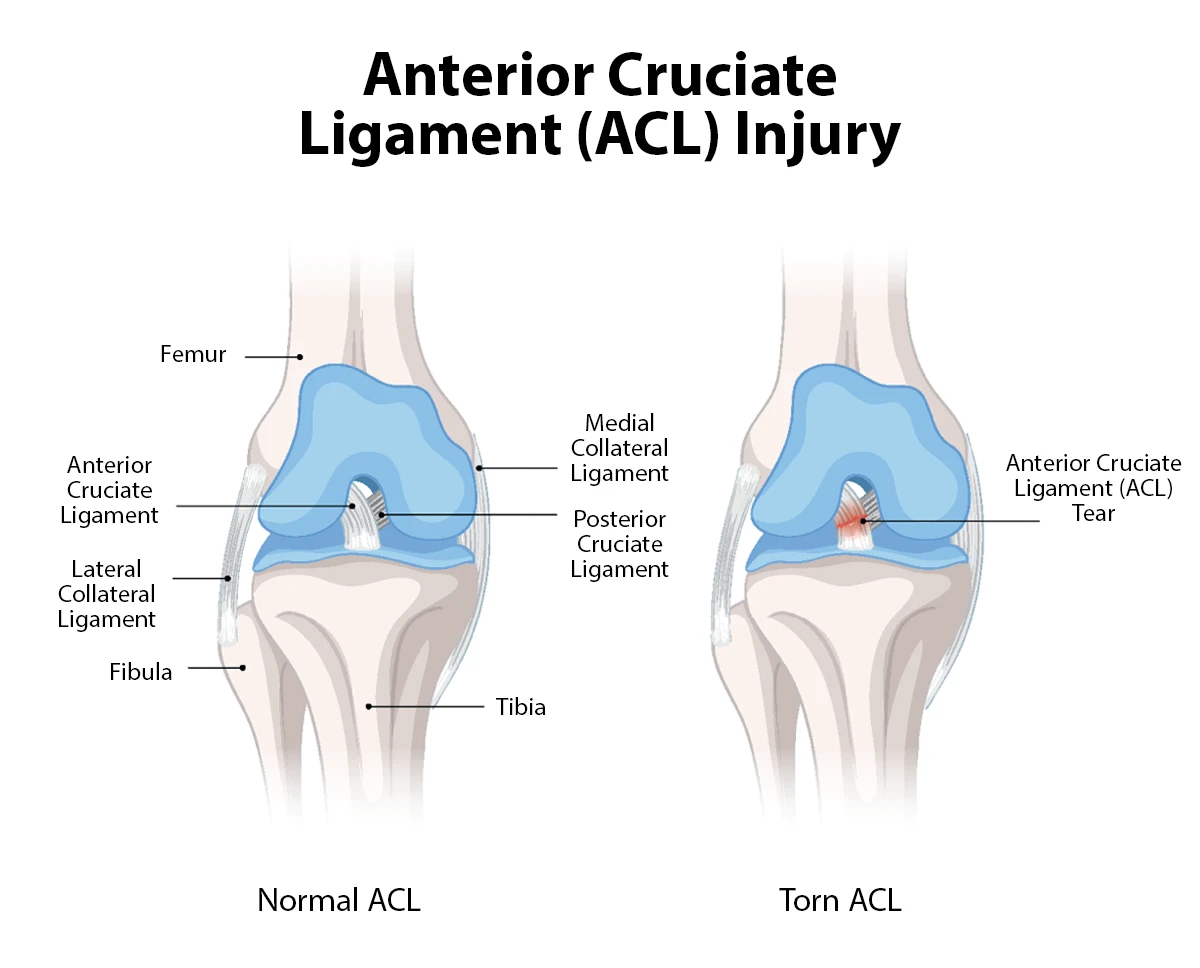Knee injuries
Find an ortho specialistKnee injuries can happen to anyone, not just athletes. Your knee is an important joint that supports your weight and allows movement. It’s not a ball and socket joint, such as those in your hips and shoulders. Instead, it’s made up of cartilage and ligaments that can be damaged due to falls, collisions, sudden movement, overuse or force.
Our team of orthopedic specialists at Advocate Health Care is here to support your recovery from knee injuries. We provide the most current treatment and diagnostic techniques, offering a range of options to meet your specific needs.
Schedule an orthopedic appointment
From recent injuries to nagging aches and pains, our orthopedic specialists can help. Schedule an appointment in LiveWell, online or by phone.
What are the three most common knee injuries?

Injuries to the anterior cruciate ligament (ACL) are some of the most common knee injuries.
There are many types of knee injuries, each affecting different parts of your knee. Common injuries include ligament tears, meniscus tears and fractures. Ligament tears often occur during sports, while meniscus tears can happen with sudden twists. Fractures usually result from falls or accidents.
The three most common knee injuries are:
- ACL injuries: The anterior cruciate ligament (ACL) is key for knee stability. It connects your femur to your tibia. Injuries often occur with sudden stops or changes in direction.
- Meniscus tears: The meniscus cartilage works as a shock absorber and keeps the bones in your knee from rubbing together. Tears are common with twisting motions.
- Patellar tendinitis: This affects the tendon from your kneecap to your shinbone, often due to repetitive stress, especially in sports like basketball or running.
Signs of a knee injury
Knowing the signs of a knee injury helps you get timely treatment. Common signs include:
- Swelling: Immediate or delayed swelling can indicate a serious problem.
- Pain: Knee pain can range from a dull ache to severe, sharp pain.
- Instability: A feeling that your knee is giving out or can't support weight.
- Limited motion: Difficulty bending or straightening your knee.
- Popping sound: Hearing or feeling a pop at the time of injury, often with ACL injuries.
How do I know if my knee injury is serious?
It's sometimes hard to tell if a knee injury is serious. If you have severe pain, notice your knee is deformed, can’t bear weight and have major swelling or instability, make an appointment with your doctor.
Knee injury diagnosis
A physical exam and imaging tests are usually enough to diagnose a type of knee injury. Your doctor will ask about your symptoms, medical history and how the injury occurred.
You may need specific tests to check your knee's stability and function. Common imaging tests include:
- X-rays: To look for fractures or bone issues.
- MRI: Gives detailed images of ligaments and cartilage.
- CT scan: Provides a detailed view of the knee joint.
Knee injury treatment and therapies
Treatment for knee injuries depends on your type of injury and the severity of your knee trauma. Common treatments include:
- Rest and ice: Rest and ice can help reduce swelling and pain.
- Compression and elevation: Using a compression bandage and keeping your knee elevated helps manage swelling.
- Therapy: Physical therapy and occupational therapy can help strengthen your knee muscles and improve stability.
- Medications: Over-the-counter pain relievers or anti-inflammatory drugs that are prescribed by your doctor may help.
- Surgery: Severe injuries may need knee replacement surgery to repair damaged ligaments or cartilage.
Recovery from a knee injury takes time. Follow your doctor's advice and stick to your treatment plan to ensure the best possible outcome.
Is that pain cause for concern?
Back, neck, hip or knee pain can cause severe discomfort and affect the way you live your life. Our pain quizzes evaluate your symptoms and risk factors and give you an idea of what to do next based on your results.
Get care
We help you live well. And we’re here for you in person and online.